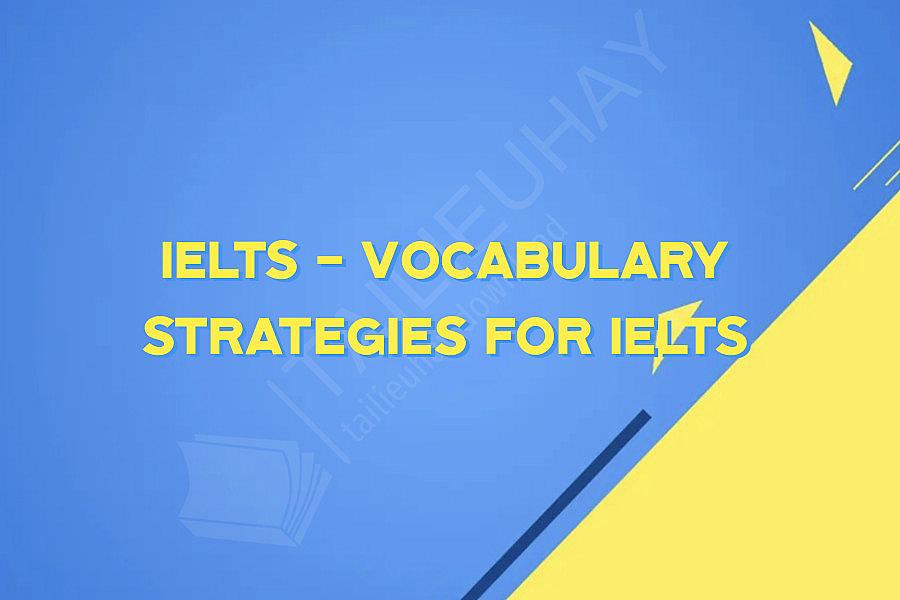IELTS - Vocabulary Strategies for IELTS

IELTS - Vocabulary Strategies for IELTS One of the essential elements to ace the IELTS exam is having an impressive and extensive vocabulary. The IELTS exam requires candidates to have a solid understanding of English vocabulary to comprehend its different sections, including reading, writing, listening, and speaking. Therefore, it is imperative to develop your vocabulary by following vocabulary strategies that can improve your English fluency and accuracy. Here are some effective vocabulary strategies that can help you achieve the desired score in the IELTS exam. 1. Read, Read, and Read Reading is a valuable tool to improve your vocabulary. The more you read, the more familiar you become with different word usage and sentence structures. Reading books, newspapers, magazines, and articles can help you encounter new words and understand their meanings in the context. Make note of any unfamiliar words and look up their meanings to enhance your vocabulary. 2. Use Flashcards Flashcards are one of the most effective ways to memorize new words. Write down the new words and their meanings on index cards, and carry them around with you wherever you go. You can glance at these cards in your free time to reinforce your understanding of the vocabulary. 3. Learn from Authentic Texts Authentic texts like literature, academic papers, and news articles utilize more complex and sophisticated vocabulary. These texts challenge you to learn new words and use them in a way that contextualizes their meaning. So, learn from authentic reading materials to enhance your vocabulary skills. 4. Use the Dictionary and Thesaurus The dictionary and thesaurus are essential tools for building up vocabulary. Look up every word you do not understand to get its pronunciation and meaning. Additionally, using a thesaurus is helpful when seeking synonyms to use in your writing tasks. 5. Group Words Together Words that share a similar meaning can be grouped together. For instance, you can group words related to happiness such as “pleasure,” “enjoyment,” “delight,” “contentment,” “bliss,” etc. Grouping words together helps you remember them easier, and their commonalities make it easier to understand and apply them. 6. Practice with Sample Papers Practicing sample IELTS papers can help you understand the exam structure and improve your vocabulary skills by identifying the words you don't know. Utilize the sample papers to evaluate your comprehension and find out the areas to focus on in your vocabulary development. In conclusion, building an extensive vocabulary is of great significance for passing the IELTS exam. Regularly reading, using flashcards, learning from authentic texts, utilizing the dictionary and thesaurus, grouping words together, and practicing with sample papers can improve your vocabulary significantly. With consistent practice, you'll gradually develop an impressive vocabulary that will substantially contribute to your overall success on the IELTS exam.
Khóa Học Cùng Chủ Đề
TypeScript - ReactJS
Code With Mosh - Complete Python Course
Swift5, IOS13 Developer Bootcamp with SwiftUI & Combine
YouTube SEO How to Rank #1 on YouTube
WordPress SEO Masterclass , SEO Audit Checklist & TOOLs
Wordpress Security - How To Stop Hackers
WooCommerce Theme Development Advanced Course
Wind Energy Technology Wind Turbines Working & Operation
Wind Energy Fundamentals Renewable Energy Power Course
Win Any Job Interview - TOP Strategies For Job Interviews
Ultimate Google Analytics course + 50 practical examples
The Most In-Depth Google Tag Manager (GTM)
The Complete WordPress Website & SEO Training
The Complete iOS11 Swift4 Development Course - Build 28 Apps
The Complete iOS Development Course. Swift Programming A-Z